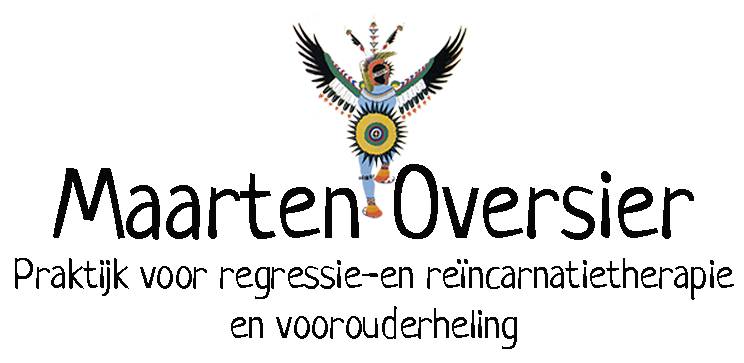Regression and reincarnation therapy
Introduction
There are many problems in which you can get stuck and feel powerless to change them. Tension, vague feelings of guilt, insecurity or a constant inner turmoil.
Maybe you haven't been feeling well for a while without a clear reason and you feel lonely or misunderstood. There can be conflicts with the same people or situations over and over, and especially with yourself. In short: due to all kinds of obstacles, the desire for a happy and meaningful life is sometimes difficult to realize.
Therapy, and in particular regression reincarnation therapy (RT), is a way to change the often unconscious limiting beliefs with associated stuck emotions that stand in the way of a happy(er) life.
This form of therapy focuses specifically on discovering the origins of such beliefs and thereby releasing old pain through processing processes. More than 25 years of practical experience has added an extremely important aspect in my practice under the name of ancestor healing.
How concretely we still seem to be connected in an obstructive sense to the events that our (ancestors) parents went through, but could never really process, became increasingly clear over the years.
Who is regression therapy for?
In fact, every personal problem situation can be tackled with RT. The condition is a willingness to "look inside yourself" to learn to understand the cause of a problem, with which you make an active contribution to your own healing process. For those who want to gain insight into themselves, their life(s) or (dys) functioning, this form of therapy is extremely suitable.
The central focus is always on discovering the origin of mental and thus liberating emotional blockages. The trauma-trapped stories behind all kinds of (physical) ailments that are often opened up during sessions turn out to have enormous transformative potential.
RT often proves to be very effective for chronic conditions in particular, with complaints significantly reducing or even disappearing completely in many cases.
It is absolutely not important whether you “believe” in reincarnation. The truthfulness of the impressions that arise during therapy may be judged by your own inner critic. Historical facts are subordinate to what lives in someone and ultimately it is of course the therapeutic results that count.
RT is also suitable for children aged 5-6 years. Various methods have been developed that are geared to a child's perception of the world (including drawing and color diagnostics). It should be noted that children often copy the tensions and themes of their parents, which leads to undesirable behavior or certain complaints. As a result, it is often desirable to have a frank conversation with them first.
Find a therapist near you:
Client stop Please note: Maarten has phased out his work in practice and is no longer taking on new clients. His focus is on training coaches and therapists, giving lectures/workshops and his book Existence Law.
For this reason it is unfortunately not possible to have you put on a waiting list or to register for any appointments that become available. We therefore kindly ask you not to email whether an exception is possible.
To make an appointment for existing clients or to cancel appointments already made (within 48 hours), you can contact Rachel Hibma by email.
For other therapists trained by Maarten, we refer you to the therapists below. We do not have therapists in Belgium or other countries that we refer to. Maarten does not advise which therapist is most suitable for you.
Regression/reincarnation therapy
RT is a form of psychotherapy. In recent decades it has developed into an independent form of therapy with logical and analytical models, methods and techniques. The roots lie with the shamans or traditional medicine people from different cultures (including the North American Indians). They did soul retrieval, whereby soul parts split off due to traumatic circumstances were returned to their owner.
For convenience, RT makes two assumptions. First of all, that man is more than just a body with all kinds of randomly occurring biological processes. There is also a soul, or immaterial human aspect, that is more or less conscious and experiences through all phases of life. The second assumption is that that human soul goes through a cycle of several lives or "incarnations".
The effectiveness of RT is based on the idea that problems have a cause. Both mentally, emotionally and physically. These problems arise from painful and confusing experiences (traumas) that have remained unprocessed and can therefore be regarded as unfinished.
These can be recent experiences, but also (very) old, often forgotten or repressed events from the past. By “past” we mean: recent experiences, childhood, childhood and infancy, the birth and pregnancy period, the moment of conception, past lives and the phase between lives. A short or longer period of loneliness, oppression, isolation or misunderstanding, for example, is also seen as a traumatic experience.
These experiences remain stored somewhere in the shadow of a person and usually people prefer to stay away from them because it feels unpleasant and fearful. However, this imperfect past presents itself sooner or later in the form of all sorts of problems, illnesses or other inconveniences. It actually requires attention, processing and reconsideration. No matter how bad situations can be, in the end everything wants to be integrated into the whole, the current personality.
We give that attention during RT sessions by making those experiences accessible again with the help of regression (= going back). From the problem with which someone comes to therapy, the subconscious makes a natural selection.
Under professional guidance, it is now possible to relive in such a way that processing can (still) take place. These can be intensive experiences, but someone never gets to process more than he/she can handle. Not processing is actually much harder! Gaining insight and processing have a subtle healing effect.
Through the insight that arises into how those experiences have worked into the present, pieces of the puzzle fall into place. You get a different view of yourself, your fellow man and life. As a result, the complaints disappear. Experiencing a past life is different for everyone, but can best be compared to playing a part in a (history) movie.
How does the unprocessed work through?
After going through a trauma, people are usually no longer “the old ones”. Sometimes that is obvious, sometimes it creeps in slowly and unconsciously. Because of the fright and confusion, emotions such as fear, sadness, anger, but also physical pain or words do not get the opportunity to be expressed. All this "unfinished" settles and freezes, as it were, in someone's "system". This can also cause many physical complaints.
For example, a heavy feeling in the chest can arise from fixed sadness, or a headache from unexpressed anger. Moreover, these experiences give rise to all kinds of limiting beliefs and views, such as: “I always have to be on my guard”, or “If I say what I think then…” or “If I start something, it will go wrong anyway” or “The world is no good” or “I don't matter…”. These beliefs live on in a person and exert a problem-causing influence.
In practice
The first consultation focuses mainly on gathering information. I am particularly interested in someone's biography. The life, the most important events and the circumstances surrounding the death of (ancestors) parents. I ask a lot of questions, and get more specific about what you want to change. But during the first session, concrete work is already being done, with experience showing that a lot is already becoming clear and falling into place.
Sessions last approximately 1.5 to 2 hours at a time. The total number of sessions required depends on the nature and complexity of your problem, and on what you wish to achieve in therapy. On average, clients come between two and five times, always at intervals of several weeks to several months.
I use different therapeutic skills that can be applied depending on each person's personality. Important here is “trance” or “attention concentration”. This has nothing to do with the seemingly controlless state that stage hypnotists induce in their volunteers.
Trance, as it is used in therapy, is most comparable to the natural state that occurs when, for example, you become absorbed in a good book: the attention is focused on the story, and the environmental influences fade. You are therefore simply aware of what is happening during and after a session.
Examples of symptoms
Many different complaints can be treated with RT. Some common ones are the following:
• not being able to say “no”.
• phobias
• inner turmoil
• separation or connection anxiety
• relationship problems
• depressions
• feelings of guilt
• fear of failure
• sexual problems
• bereavement processing
• sleep disorders
• eating disorders
• hear voices
• aggression and violence
• chronic physical complaints
Privacy Statement |
Complaints procedure | Terms and Conditions |
Terms of Delivery
|
Chamber of Commerce number: 01155691
All rights reserved | Maarten A. Oversier - Practice for regression and reincarnation therapy and ancestor healing










